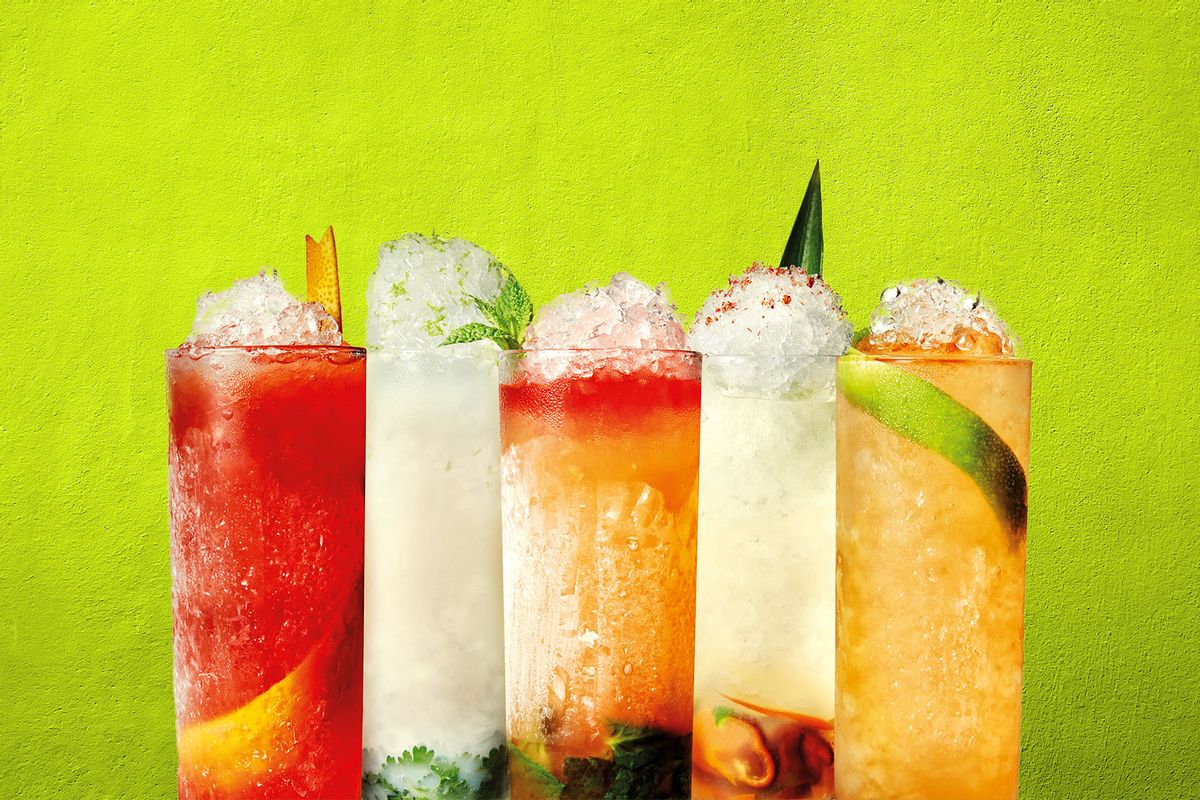“Mocktail” no more: Why bartenders want to change what we call non-alcoholic drinks

In the not-so-distant past, ordering a non-alcoholic drink at a bar or restaurant usually amounted to nothing more than seltzer combined with some sort of saccharine — often inexplicably blue — syrup. The two liquids wouldn’t be mixed in any sort of meaningful manner, so you’d be left with a flat, dull seltzer and a pool of sludge in the bottom of your glass . . . yum?
Ordering them was often an ordeal as well, one that required requesting a cocktail and then saying “. . . um, but could it come without the liquor?” You’re not a child at an all-inclusive resort trying to get a tropical piña colada to sip on in the pool. You’re an adult trying to order a drink. It shouldn’t be this challenging.
However, this is thankfully changing. According to NielsenIQ, a data analytics company, the market for nonalcoholic beer, wine and spirits grew more than 20% last year and more than 120% over the last three years. The market now sees almost $400 million in annual sales, and with that newfound prevalence, there are definitely better options for a spiritless cocktail, but a big question still remains: What should those beverages be called?
You’re an adult trying to order a drink. It shouldn’t be this challenging.
Monikers like “mocktail” and “virgin” have long been standbys, but as bartenders across the country are becoming increasingly intentional about the non-alcoholic beverages they serve — and customers are becoming more intentional about how and what they drink — beverage professionals say it may be time to consider naming alternatives.
“I think that the industry may be moving away from the term ‘mocktail’ probably because people are now taking non-alcoholic offerings just as seriously as alcoholic options,” said Allie Ballin, co-owner of the Wildset Hotel and Ruse Restaurant. “Now, ‘mocktails’ are just as thoughtfully created as cocktails, and craft brewing and wineries are adding quality NA options to their arsenal.”
This sentiment is echoed by James Simpson, the beverage director and partner in Destination Unknown Restaurants, a D.C.-based restaurant. He told Salon Food that the word “mocktail” conveys a knock-off of something — which was unfortunately the standard in the industry for a long time — however, he has found “that the rise in the popularity of non-alcoholic drinks has given us more room to make beverages without alcohol and put them right on the cocktail menu alongside alcoholic cocktails.”
Want more great food writing and recipes? Subscribe to Salon Food’s newsletter, The Bite.
Of course this isn’t a brand new idea; Julia Momose — A Chicago-based bartender, mixologist and the creative director of Kumiko, a Japanese dining bar —told Michelin in 2018 that she would “like to petition that we cease referring to the non-alcoholic drinks we serve as ‘mocktails’ and assign a name more befitting the care and the skill that goes into the beverage.” However, it’s one that is certainly gaining popularity in tandem with the development of non-alcoholic beverage programs, like the one at ilili in New York City.
“Words are very important in shaping our guest experience, so from the inception of ilili’s NA program, we embraced and taught ‘soft cocktail’ over ‘mocktail,” said the restaurant’s beverage director, Chris Struck, who continued saying that the latter was a term best saved “for a list of Shirley Temple-esque drinks that might be served at a middle school talent show.”
As Struck said, changing the naming conventions around non-alcoholic drinks is often an exercise in hospitality.
Elizabeth Parker, who is the general manager of D.C.’s Lutèce, joined the team back in May 2022 while feeling “disenchanted by finding little or no engaging beverage options when dining out,” which resulted in the beverage program growing exponentially since. According to Parker, the restaurant’s Sans Alcohol program features selection of alcohol-free spirits, bitters and botanicals to create seasonal non-alcoholic cocktail menus, which includes drinks like the Jalisco Heartbreaker, made with Spiritless Jalisco 55 (a popular tequila alternative which, per Lutèce bartender Allison Desy, has ” has wonderful ginger and vanilla notes”), rosemary, hibiscus tea and bubbly club soda.
The menu also allows bartenders the ability to make non-alcoholic versions of classic cocktails like negronis, Manhattans, old fashioneds and Apérol-esque spritzes.
“Diners shouldn’t need to sacrifice the creativity, complexity and social inclusion of craft cocktails just because they don’t want the alcohol,” Parker said. Furthermore, she notes the intentionality and the fact that it’s not some sort of ephemeral venture, stating “This section of our menu was not developed for Dry January, Sober October or No-vember. We champion creating delicious cocktails with or without alcohol year round for all of our guests to pair with our menu, augment their dining experience and most importantly — to enjoy!”
Will Patton, the beverage director at Bresca and Jônt, speaks to the importance of the hospitality aspect.
“We champion creating delicious cocktails with or without alcohol year round for all of our guests to pair with our menu, augment their dining experience and most importantly — to enjoy!”
“One of the staples of elevated dining is never say ‘no’ to a guest. So if someone doesn’t imbibe, we want to be able to ‘yes’ while not compromising our standards,” Patton said. “We are very proud of our cocktail selections so it’s important to take as much pride in our non-alcoholic beverages as well.”
He points to the Citronnade a la Menthe, served at his restaurants, which is a “a play on the traditional mint lemonade served in French bistros. We prepare a cardamom lemon cordial and mix it with Moroccan tea before lightly fermenting for 48 hours. This doesn’t add any discernible alcohol, less than a kombucha, but does lighten the sugar content and add a spumante amount of fizz.”
As someone who is currently abstaining from alcohol, I’m agnostic over what to call these carefully-crafted beverages. Spirit-free, zero-proof, soft cocktail, whatever — just don’t call it a Shirley Temple (though I’ll never turn some grenadine in my drink).
Read more
about this topic


